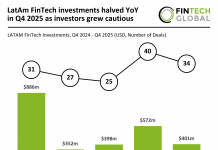A study by Cushman & Wakefield has spotlighted the pivotal role of ESG factors in shaping the investment landscape across industries.
Accoridng to ESG News, the report’s findings are grounded in a survey of 250 institutional investors, revealing that a significant 60% have observed higher performance yields from ESG-focused investments. Additionally, a notable 78% of these investors are prepared to incur higher fees to engage with such funds.
Institutional investors are markedly prioritizing properties that showcase robust ESG management, fundamentally transforming capital allocation within businesses. As a result, companies demonstrating strong ESG credentials are becoming magnets for investment inflows.
The report further delves into the realm of Building Performance Standards (BPS), which are redefining energy efficiency and sustainability benchmarks within the real estate sector. With these standards set to regulate energy usage, carbon emissions, and the overall performance of buildings, companies are compelled to upgrade their infrastructures to align with new regulatory environments or face substantial penalties.
On another front, the push for mandatory ESG reporting is gaining momentum worldwide. Such requirements are set to enforce transparency, compelling companies to publicly disclose their environmental and social impact metrics. This move towards openness not only enhances accountability but also positions companies better in managing risks and seizing new opportunities.
Addressing the critical issue of decarbonization, the report highlights its non-negotiable status for businesses aiming to remain competitive amidst global shifts toward a low-carbon economy. Investment is surging in renewable energy and decarbonization initiatives, particularly in high-emission sectors like manufacturing, energy, and transportation.
The practice of green leasing is emerging as a strategic approach to foster partnerships with tenants over shared sustainability goals. These leases are instrumental in aligning landlord and tenant objectives, catalyzing collective action towards ESG targets.
Digital transformation is also identified as a catalyst in advancing ESG goals. Utilizing technologies such as the Internet of Things (IoT), Artificial Intelligence (AI), and data analytics, companies are enhancing their capability to monitor and improve sustainability metrics effectively.
Lastly, the growing prevalence of climate-related disasters has ushered in a heightened focus on climate risk assessment and mitigation. Companies are actively developing strategies to cushion against the impacts of extreme weather conditions and rising sea levels, ensuring both asset protection and long-term viability.
Cushman & Wakefield’s report concludes with a forward-looking perspective on the integration of ESG factors, which are not only mitigating risks but also opening up avenues for corporate growth. As businesses align more closely with these ESG trends, they are poised to thrive in an increasingly sustainability-oriented global market.
Keep up with all the latest FinTech news here
Copyright © 2024 FinTech Global











